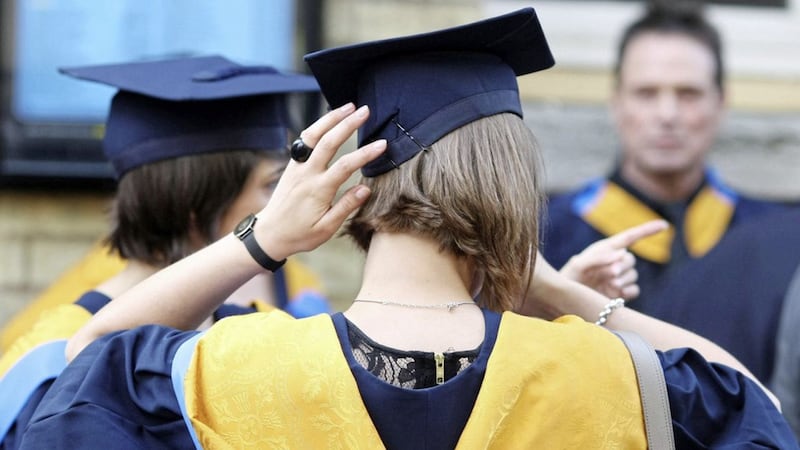In mid 19th century Belfast, according to the Oxford Dictionary of Superstitions, some women used to predict the looks and character of their future husbands by eating a herring and throwing the membranes against a wall. If the membrane stuck upright, the women could expect a decent, upright spouse; if the membrane was crooked… well, an unhappy future was ahead.
While choosing a spouse can often be a matter of sheer luck, I did wonder last week if the British government was starting to use worrying ‘throw stuff at a wall and see what sticks’ methods of handling the coronavirus crisis.
Who could possibly have predicted that introducing a 10pm pub curfew in Britain would lead to everyone leaving licensed premises at 10pm, spilling onto the streets and trying to get taxis at the same time?
Similarly, who could have foreseen that coronavirus outbreaks would happen in university student halls, as thousands of teenagers who had spent six months cooped up tried to manage living on their own for the first time?
Professor Mark Woolhouse, who sits on the government's pandemic modelling group SPI-M, said outbreaks amongst the student population were "entirely predictable”, particularly in halls. I’d go so far as to say that problems with pub opening hours and student housing seemed pretty inevitable to anyone with even a vague grasp of human behaviour. So why were they not obvious to a government supposedly driven, in England at least, by Dominic Cummings - a man who styles himself as the great super-forecaster, someone who can predict events with eerie accuracy?
The more paranoid amongst us might wonder if central government has given up on trying to curb the pandemic and has shifted to vaguely trying to manage it. Boris Johnson’s announcement of new restrictions earlier this month seemed less like a serious attempt to control the spread of coronavirus and more ‘will this do?’.
Unfortunately it won’t do for the students at several universities now being told to self-isolate for 14 days. It seems crazy to encourage students to go on to third-level education, ask them to pay thousands of pounds in fees and accommodation, then tell them to self-isolate.
As an incredibly naive 18-year-old, who’d only visited a city twice before moving to Dublin for university, I’m not sure how I would have coped with having to lock myself away in a room barely a week into my first term. (“Is Ballymena the big smoke for you?” a Dublin-born lecturer once asked me. I was too embarrassed to say yes.)
So why were students encouraged to go to university? It seemed pretty obvious that the pandemic would force most classes to be held online, at least for the first few months of the academic year. Not for the first time, the Irish government got it right by acting before students were due to arrive on campus. All third level institutions have been asked to deliver teaching remotely for several weeks, avoiding large groups from congregating in lecture halls.
With remote learning becoming the new normal, it’s not clear how many students studying at Queen’s University and Ulster University have decided to remain at home rather than moving into student accommodation. But staying at home was not even an option for the thousands of northern students studying in Britain. Perhaps it would have been if they had been given clear guidance in advance.
Calls for students to ‘act responsibly’ put the onus on individuals, rather than the institutions themselves. In other words, if you get coronavirus it’s your own fault. With just a few months until Christmas, the idea that students will be forced to stay in their university accommodation, rather than return home, seems incredible. Yet that’s what Sir Mark Walport, a member of the Scientific Advisory Group for Emergencies (Sage), has already suggested.
Universities are no longer seats of learning. They’ve been run primarily as businesses for decades. Yet often students do not seem to have the same rights as consumers. If we want 18-year-olds to behave like the adults they are, then they need to be treated fairly. Anything else is as helpful as throwing fish innards on a wall and hoping they stick.








